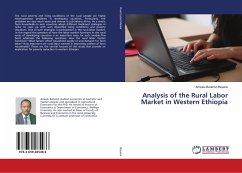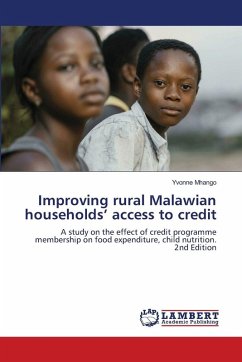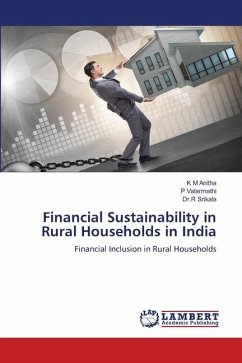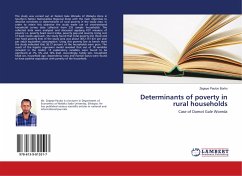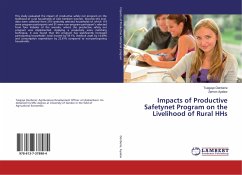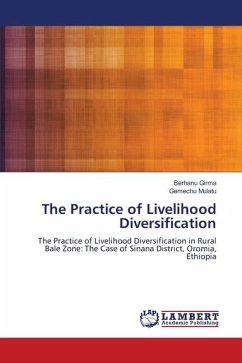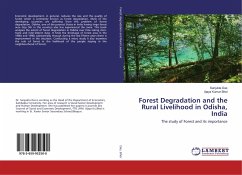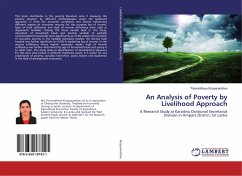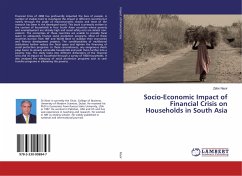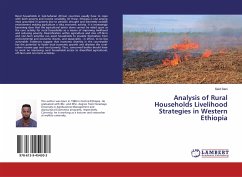
Analysis of Rural Households Livelihood Strategies in Western Ethiopia
Versandkostenfrei!
Versandfertig in 6-10 Tagen
27,99 €
inkl. MwSt.

PAYBACK Punkte
14 °P sammeln!
Rural households in Sub-Saharan African countries usually have to cope with both poverty and income variability. Of these, Ethiopia is one among most grounded in poverty due to periodic drought and extremely variable environment making agriculture a risky economic activity. It is increasingly becoming clear that the agricultural sector alone cannot be relied upon as the core activity for rural households as a means of improving livelihood and reducing poverty. Diversification within agriculture and into off-farm and non-farm activities can assist households to insulate themselves from environm...
Rural households in Sub-Saharan African countries usually have to cope with both poverty and income variability. Of these, Ethiopia is one among most grounded in poverty due to periodic drought and extremely variable environment making agriculture a risky economic activity. It is increasingly becoming clear that the agricultural sector alone cannot be relied upon as the core activity for rural households as a means of improving livelihood and reducing poverty. Diversification within agriculture and into off-farm and non-farm activities can assist households to insulate themselves from environmental and economic shocks, and seasonality - in effect, to be less vulnerable. Evidences suggest that economic diversity in the countryside has the potential to foster local economic growth and alleviate the rural-urban income gap and rural poverty. Thus, concerned bodies should have to work on improving rural households access to diversified agricultural, off-farm and non-farm activities.



